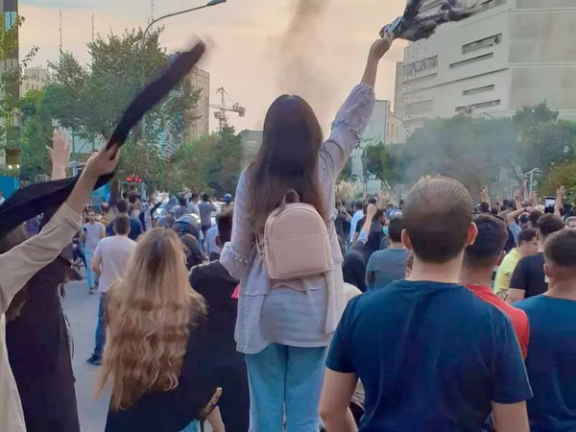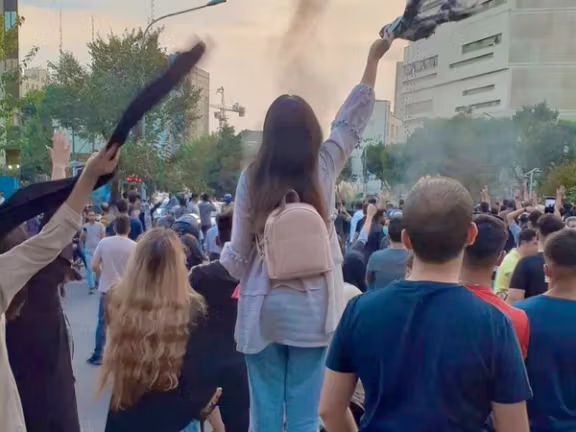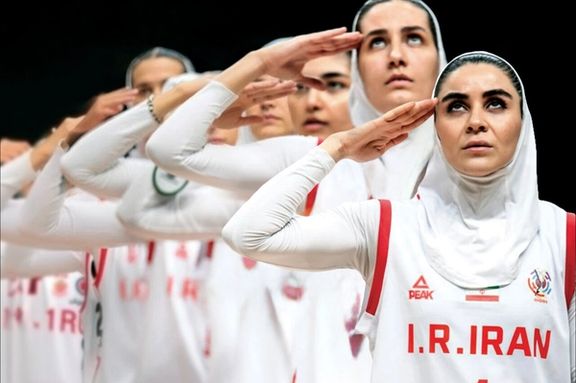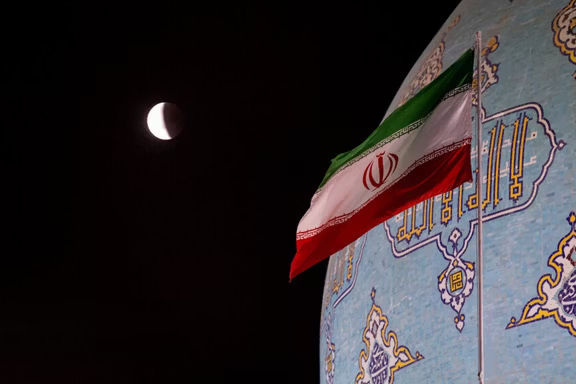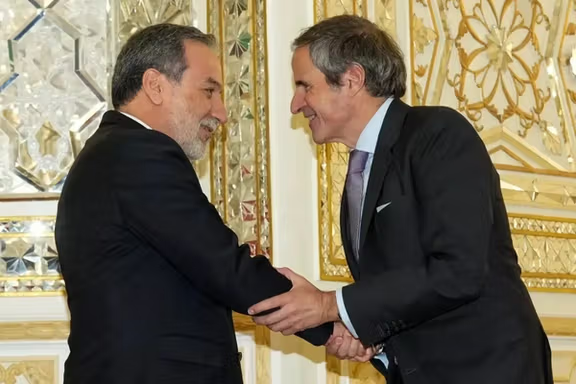After the crackdown, hardliners introduced new “hijab enforcement” bills and deployed surveillance cameras to identify unveiled women.
The laws remain on the books, but the persistent defiance of women—and men supporting them—has rendered them largely unenforceable.
“Looking back to three years ago, when the government seemed in total control, I wonder at the courage of those who left home to protest knowing they could be shot, arrested, blinded, or confined to a wheelchair for life,” said Shina, a 34-year-old artist in Tehran.
Recalling the 2022–2023 protests and the extraordinary violence against demonstrators, she described the cost as heavy.
“People eventually returned to their homes, but no one doubts that the change that followed was worth it. Those who protested will protest again, and many who stayed home will go out if women's achievements are in danger,” she said.
Walking through even conservative cities such as Qom and Mashhad, as witness accounts and an abundance of videos on social media attest, the rules for women's appearance have shifted drastically since Mahsa Amini died in morality police custody in 2022.
The nationwide protests which followed were scotched with deadly force.
Her supposed offense was strands of hair showing beneath her headscarf, though she wore a modest black coat and trousers.
At the time, morality police patrols were a daily fixture, stationed at squares, metro stops and shopping malls, stopping and arresting thousands of women or impounding their cars.
Today, unveiled women are a pervasive sight in shops, banks, restaurants and metro cars.
'No going back'
On top of the gains, new boundaries are being tested daily by women.
“There is no going back for women. The genie is out of the bottle and can’t be pushed back into it,” said Taha, a 55-year-old from Tehran, and pointed to shifts far beyond clothing.
“For decades, riding motorbikes was taboo. Just look at how many women now ride in defiance of authorities who refuse them licenses because of gender. Like those who defied the hijab, they are multiplying by the day and will eventually force the government to give in,” he said.
Public singing and dancing—once unimaginable—are now similarly more visible, especially among young people. Women post videos of their performances on social media. Each act chips away at decades of enforced control, much like posting unveiled photos once did.
Women are not alone
Many Iranian men openly support women’s demand for control over their appearance and lives.
“My daughter dreams of becoming a gymnast or ballerina, performing for the public and taking part in international competitions. Other young girls have similar aspirations," said Alireza, father of a teenage boy and girl.
"The women of my generation were forced into submission and their dreams were lost, but the young people of today will not give in; they know that they still have a long way to go and need our support."
Taha said male solidarity with women was essential for progress.
“Seeing women breaking out of boundaries is extraordinary and inspiring. We must support them in whatever way we can so our daughters, wives, and friends can't be forced back into defined roles,” he added.
"What Iranian women have achieved, through years of perseverance and sacrifice, has been a lesson to all.”
